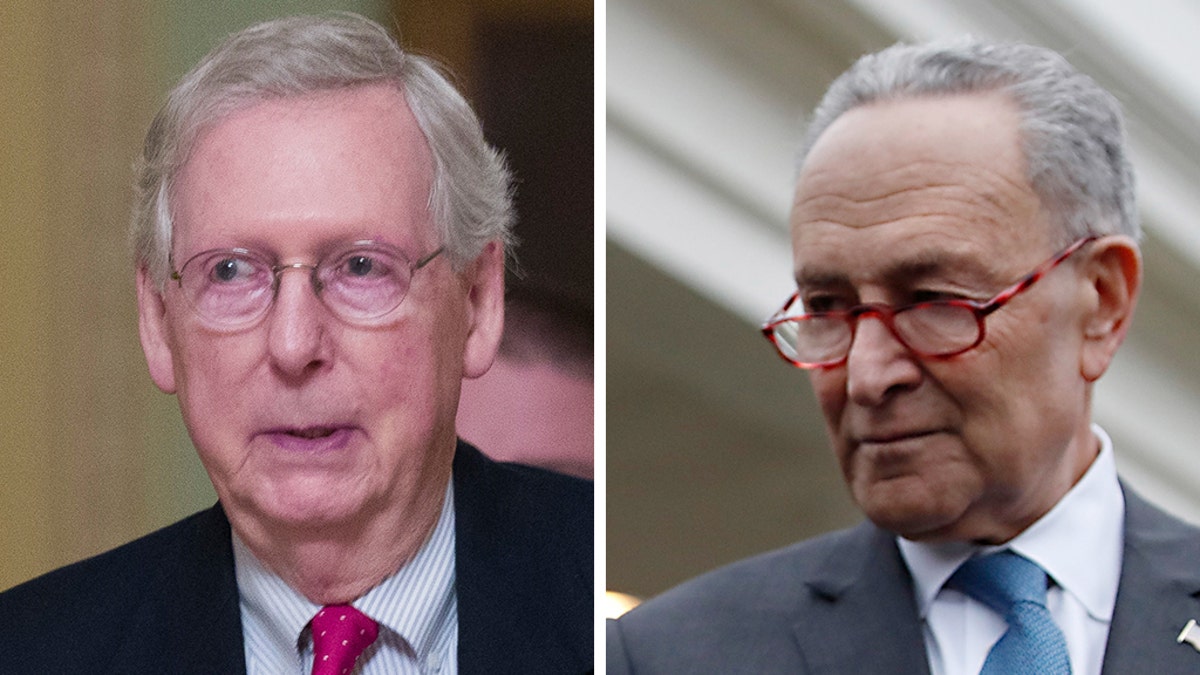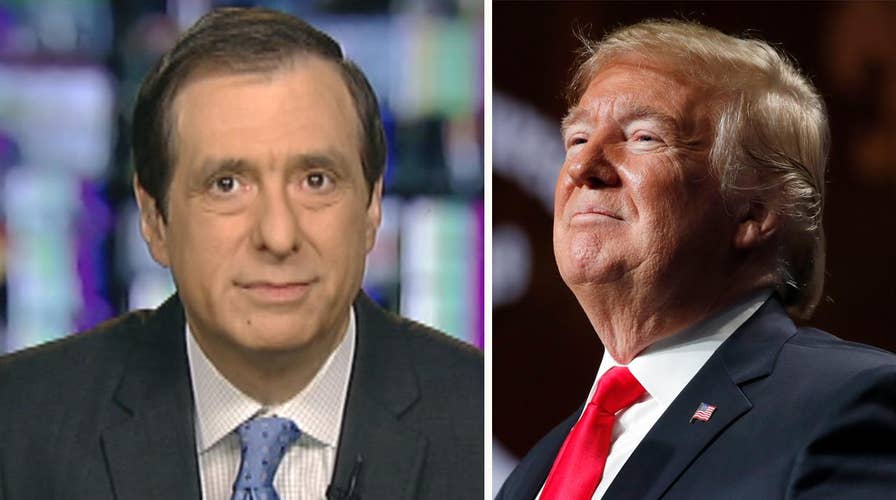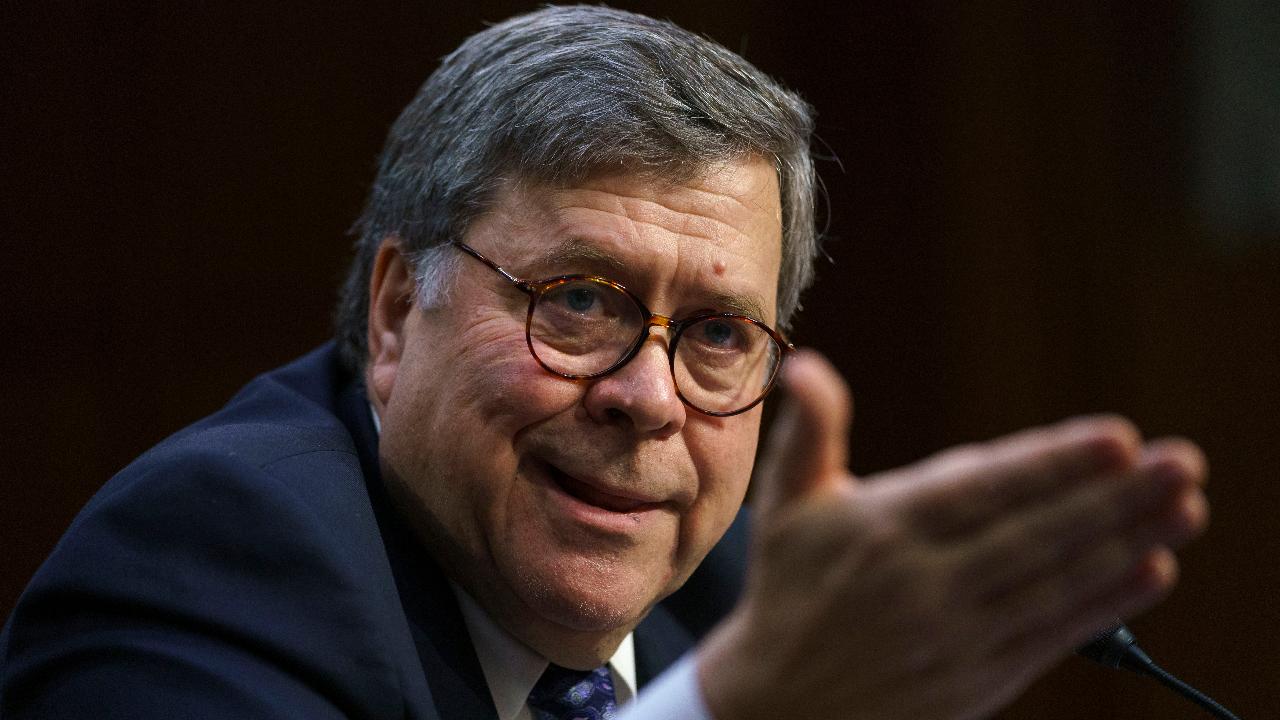Howard Kurtz: Why pundits think Trump’s NATO blasts are all about Russia and Putin
'MediaBuzz' host Howard Kurtz weighs in on the leaks to the New York Times that former and current White House advisers have allegedly attempted to stop President Trump from withdrawing the United States from NATO, which could be seen as a positive play for Russia and Putin.
In a remarkable rebuke of Senate Majority Leader Mitch McConnell and the White House, eleven Republicans on Tuesday joined with unanimous Democrats to keep alive a resolution opposing the Trump administration's decision to diminish sanctions against Russia.
The development underscored the growing foreign policy fissures in the Republican Party, whose leaders have sparred with the Trump administration in recent weeks over everything from the U.S. military pullout in Syria to its stance on humanitarian abuses in Saudi Arabia.
The Republican-controlled Senate voted 57 to 42 against the attempt by McConnell, R-Ky., to table the resolution crafted by Senate Minority Leader Chuck Schumer, D-N.Y. The Republicans who defied McConnell on the procedural vote were Sens. John Kennedy, Susan Collins, Marco Rubio, John Boozman, Tom Cotton, Steve Daines, Cory Gardner, Josh Hawley, Ben Sasse, Martha McSally and Jerry Moran.
McConnell set up another procedural vote Wednesday to end debate on the resolution. The vote, set for 12:30 p.m. ET, needs 60 votes to pass.
“We’re only a few Republican votes short of the U.S. Senate telling Putin he can’t run the show no matter what President Trump and his administration try to do," Schumer said in a statement. "If Republican Senators agree with Leader McConnell, who said that Putin is a ‘thug’ – they’ll vote yes tomorrow.”
Treasury Secretary Steven Mnuchin was urging senators on Tuesday to vote against Schumer's resolution, which called for maintaining sanctions on companies linked to Russian oligarch Oleg Deripaska. The measure would block a Treasury Department move, announced in December, to lift penalties against the aluminum manufacturing giant Rusal and two other companies connected to Deripaska.
The 2017 sanctions law permits Congress to override the White House's efforts to reduce penalties on Russia, but a 60-vote threshold would effectively be required to defeat Trump's potential veto.
Mnuchin met with Republican senators behind closed doors Tuesday in the hours before a planned Senate vote on the Schumer sanctions resolution.
PELOSI SLAMS MNUCHIN AFTER CLASSIFIED BRIEFING, SAYS HE WASTED DEMS' TIME AND 'BARELY' SAID ANYTHING
Speaking to reporters after the meeting, Mnuchin said, "We have been tougher on Russia with more sanctions than any other administration." He said the sanctions "shouldn't be a political issue."
Tuesday's development marked a striking defeat not only for Mnuchin, and the latest in a string of losses for McConnell. For more than a week, McConnell has tried and failed on three occasions to get the Senate to start debate on a bill to assist Israel and sanction Syria. Each of the procedural votes to launch debate on that measure went down to defeat.
In the new Congress, the Republican Senate has failed three times to begin debate on a measure backed by McConnell. But the first measure on which the Senate actually was able to begin debate in the new Congress is the one backed by Schumer.

Senate Majority Leader Mitch McConnell, R-Ky., had sought to kill the resolution by Senate Minority Leader Chuck Schumer, D-N.Y. that opposed the Trump administration's move to limit Russia sanctions.
The Treasury Department says the Russian companies have committed to separating from Deripaska, who will remain blacklisted as part of an array of measures announced in early April that targeted tycoons close to the Kremlin. It also warns that the sanctions could upset global aluminum markets.
The vote comes as Democrats have questioned President Trump's Russian ties and questioned whether his administration is being too soft on Russia.
Schumer, who introduced the resolution and called for a vote on it, called the Treasury Department decision "sanctions relief for President [Vladimir] Putin's trusted agents." Congress has 30 days to block the move to terminate the sanctions.
Democratic House leaders have also criticized the move and are considering a similar vote. The new Democratic chairmen of seven committees called Mnuchin in for a classified briefing last week on the easing of the sanctions.
At issue is a December announcement from the Treasury Department that the U.S. would lift sanctions on the three companies — Rusal, EN+ Group and the Russian power company JSC EuroSibEnergo. EN+ Group is a holding company that owns nearly 50 percent of Rusal.
In a letter asking Mnuchin for a briefing, the committee chairmen said the sanctions deal appears to allow Deripaska to keep "significant ownership" of one of the companies. They did not elaborate.
The Treasury Department maintains that the companies have committed to diminish Deripaska's ownership and sever his control. In a statement released ahead of the House briefing, Mnuchin reiterated that Deripaska remains under sanctions, "his property and interests remain blocked, and any companies he controls are also sanctioned."
Treasury added that if the companies remained under sanctions, the Russian government might move to nationalize the company, thus shutting it out from any outside control.
Democrats have asked for an extension of the 30-day timeline because the sanctions announcement came just before a holiday recess and the start of the government shutdown. Mnuchin said after his Senate meeting Tuesday that they will see how the Senate vote goes.
"Our view is that we have great responsibility in managing the sanctions programs all over the world, and we take those responsibilities very seriously at Treasury," Mnuchin said.
Fox News' Chad Pergram and The Associated Press contributed to this report.














































